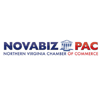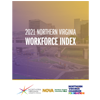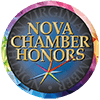WEEK 3 IN THE VIRGINIA GENERAL ASSEMBLY
The Northern Virginia Chamber will continue to maintain a full-time presence in Richmond during the session, this year aided by additional full time contracted lobbyists from Williams Mullen. For more information regarding the Chamber’s business advocacy efforts and to see our 2020 Legislative Agenda, please visit the Chamber’s website at https://novachamber.org/2020-legislative-session.html.
Lobby Day and Viva Virginia
The Chamber hosted its annual Lobby Day and Viva Virginia Legislative reception on Wednesday. More than 20 members made the trip to Richmond and met with House and Senate leaders including Speaker of the House Eileen Filler-Corn, House Majority Leader Charniele Herring, Senate Majority Leader Dick Saslaw, House Minority Leader Todd Gilbert, and the staff of Senate Finance Chair Janet Howell. We also met with Sec. of Education Atif Qarni, Sec. of Finance Aubrey Layne, and Sec. of Transportation Shannon Valentine. We heard very encouraging reports on the Chamber’s shared priorities included in the Governor’s budget, particularly around major investments in education and transportation.
The Annual Viva Virginia Legislative Reception was once again a success. Many thanks to all the members who were able to attend. Special thanks to past Chamber Chairman Gary Nakamoto for once again sponsoring the event along with Cox Communications. We had great turnout of members, legislators, and officials including Lieutenant Gov. Justin Fairfax, Speaker Filler-Corn, Sen. Howell, Del. Kathleen Murphy, Del. Ibrahim Samirah, Del. Suhas Subramanyam, Del. Alfonso Lopez, Del. Mark Keam, Sen. Barbara Favola, and Sen. Jennifer Boysko.
Education and Workforce Bills
One policy area where Chamber priorities will advance this session is in education and workforce development. There are a number of these bills we are supporting that, when taken together, show a strong interest by this General Assembly in workforce development. The Chamber is very encouraged that our legislators have heard from the business community that more is needed to fill open jobs and create tomorrow’s workforce.
- Dual Enrollment and Graduation Requirements:
HB195 (Orrock) was unfortunately recommended to be passed by to 2021 by subcommittee this week. This bill requires the State Council of Higher Education in Virginia (SCHEV) to develop strategies to enhance dual enrollment opportunities for students. Similar to the bills offering work-based learning as substitute for AP/IB courses. SB323 (Barker) allows for the substitution of computer science for foreign language requirements.
HB1680 (Tyler) would require the Board of Education to update its Career and Technical Education Work-Based Learning Guide to expand the opportunities available for students to earn credit for graduation through high-quality work-based learning experiences. This bill could go before subcommittee on Monday.
Association Health Plans
The Northern Virginia Chamber remains supportive of association health plan legislation (HB795-Hurst, SB235-Barker, SB861-Mason), which would allow associations like Chambers of Commerce to offer health coverage to small businesses. This helps small business gain access to more affordable healthcare for their employees. Last session, Gov. Northam vetoed legislation regarding association health plans. The Virginia Chamber took the lead in working through his list of objections. SB861 was approved by the Senate on Jan. 24 and SB235 was read the second time by the full Senate on Jan. 23.
Energy Bills
This General Assembly has a very strong interest in pursuing new clean energy policies for the Commonwealth and members have introduced a variety of bills to do so. Our 2020 Legislative Agenda supports initiatives that promote a diverse, reliable, efficient, and affordable energy portfolio to support a growing economy, while contributing to the Commonwealth’s economic development and environmental goals.
- Virginia Energy Plan
- The Green New Deal:
- Virginia Clean Economy Act
Taxing Authority
One challenging set of bills, HB785 and SB484, would equalize taxing authority between counties and cities. The Chamber is opposing these bills as drafted because they would allow counties to adopt an unlimited meals tax without referendum and to adopt a higher transient occupancy tax. The bills would also allow counties to adopt admissions taxes and tobacco taxes, but the meals and TOT are the two categories that would produce the most revenue for Northern Virginia counties. The Chamber opposes the bills as drafted.
Required Employee Leave Proposals
The General Assembly will consider a number of proposals on requiring employers to offer specific kinds of leave. While there was no progress on these bills this week, the Chamber remains actively engaged with patrons, leadership and members of the appropriate committees. These proposals include mandating employers offer employees 4 hours of parental leave annually, at least 24 hours of paid sick leave annually, 4 days of leave annually if the employee or a family member is a victim of sexual violence, and the largest proposal is a state-run Paid Family and Medical Leave program (HB825 Carroll Foy/SB770-Boysko) that would increase payroll taxes on employers and employees and provide employees up to 12 weeks of annual leave for reasons included in the federal, non-paid, Family and Medical Leave Act. The Chamber spoke against the program included in these bills during a special committee in the fall, and stated the program is too costly, too expansive, and undermines the market-based, competitive benefits packages our members already offer. While we are not supportive of any mandated leave bills, we have been engaging with patrons to try and mitigate the potential impact should the bills be successful.
Business Climate (Minimum Wage and Right to Work)
As expected, there is legislation raising the minimum wage and repealing right to work. The Chamber is opposed to both and monitoring the many minimum wage proposals that have been introduced.
- “Fair Share” and Right to Work
Budget
This is of course a budget year, and Gov. Northam’s 2020-2021 budget includes major investments in education and transportation. The Chamber is working to ensure our priorities included in the budget, particularly in education and transportation, are funded equitably through General Assembly adoption.
Budget amendments we are supporting include Sen. Favola’s restoration of the Commonwealth Cyber Initiative which is $25,000,000 over the biennium. There are a couple that we are working with the patrons on to better understand, mostly those that alter the Governor’s G3 initiative: freezing tuition and changing definitions of eligible students and institutions.
If you have not reviewed the proposals included in this budget, I would encourage you to do so here: https://www.governor.virginia.gov/newsroom/all-releases/2019/december/headline-849987-en.html
- Education:
- $145M: The establishment of the G3 program which provides tuition-free community college available to low- and middle-income students who pursue jobs in high-demand fields
- $94M: The budget makes many investments in early childhood education, the largest of which is $59.5M for the Virginia Preschool Initiative which targets at-risk 3- and 4-year-olds.
- $1.2B: The budget includes funding for a number of K-12 priorities of the Governor, including $145M for teacher raises and $125M in flexible funding for local school systems
- Transportation
- Increases the gas tax by 4 cents annually for 3 years then ties it to the Consumer Price Index.
- Replaces $45M of NVTA revenue diverted to WMATA in 2018
- Administration’s presentation on the transportation elements of the budget: http://sfc.virginia.gov/pdf/transportation/2020/01152020_No1_Valentine.pdf
These weekly updates are meant to provide a snapshot of how the Chamber is advocating on behalf of our members at the General Assembly. If you would like to know how the Chamber is engaging on a topic not included in this update, please contact Vice President of Government Relations Clayton Medford (cmedford@novachamber.org).















